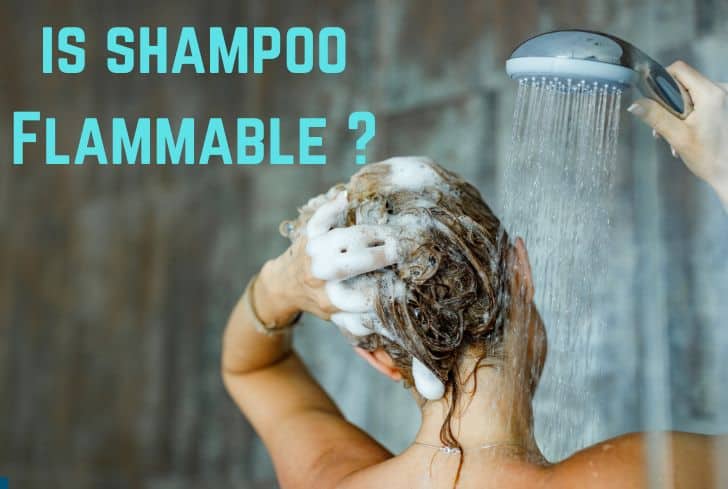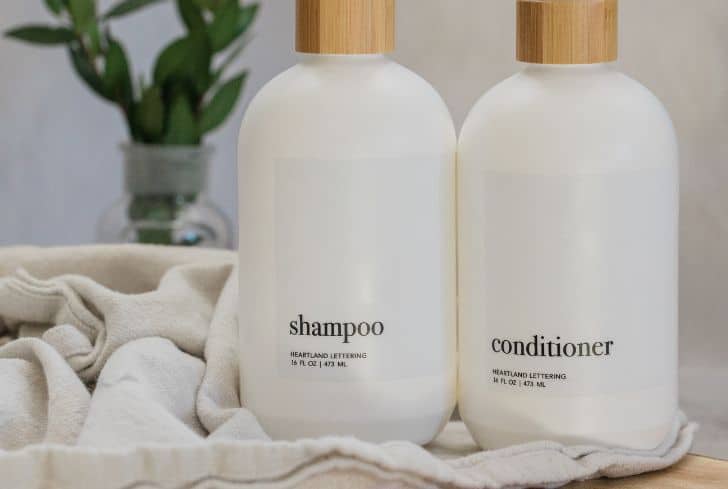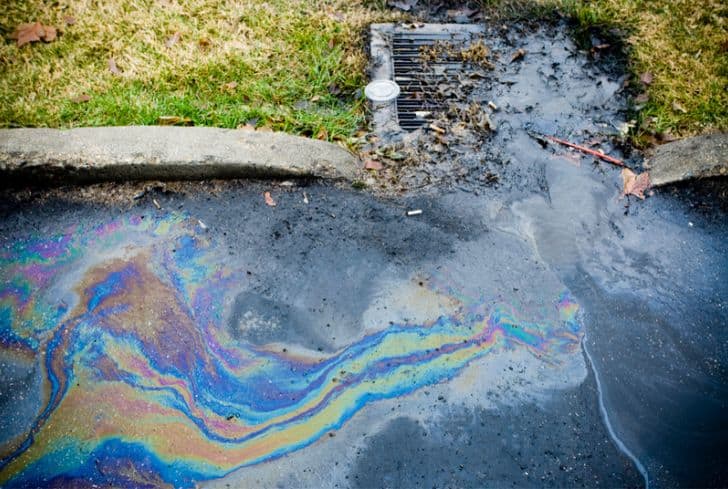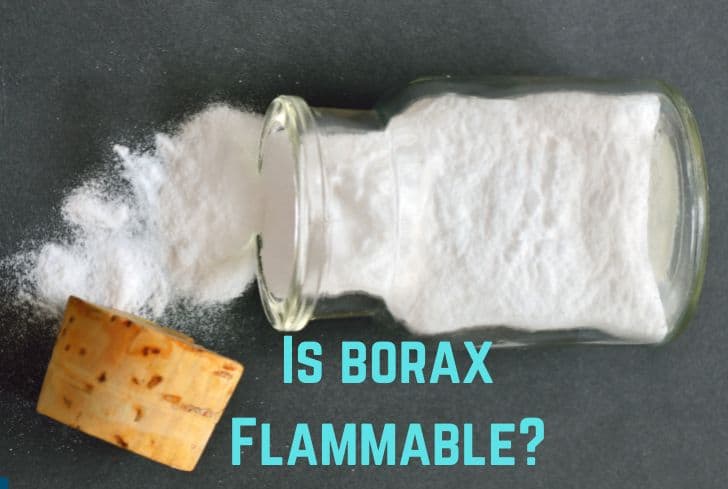Is Shampoo Flammable? (And a Hazardous Substance?)

Most individuals use products daily without giving the components that make up the products any thought. You probably wash your hair every day with shampoo. Have you ever wondered whether your shampoo’s substances could harm you? You must establish whether shampoo poses a health risk. Let’s start by asking ourselves, is shampoo flammable?
We felt it necessary to answer a few additional questions regarding shampoos when answering whether the shampoo is flammable or not. Knowing the different compounds that make shampoo and whether it’s hazardous would be helpful. We also tell you if additional products, such as hair oil, dry shampoo, and Monat dry shampoo, are flammable. Find out if it is okay to dump shampoo in the trash or how to dispose of it.
Is Shampoo Flammable?
In its purest form, shampoo is soap and soap burns. However, most common shampoos are liquid and include a lot of water. Detergents and emulsifiers that are not flammable are present in the shampoo. Shampoo can have compounds that can ignite a fire when they come into contact with an ignition source.
Fortunately, any flammable compounds in shampoo have a difficult time doing so due to the high water content of shampoos.
So unless the shampoo you’re using has a flammable element, your shampoo is not flammable. You can use a smoke test to confirm whether the shampoo has flammable materials.
What is Shampoo Made of?
A typical shampoo has many different components. Shampoos have various applications. Hence the elements making them will differ. Apart from water, they also contain surfactants. The most common surfactant in shampoos is sodium lauryl sulfate(SLS). The work of surfactants is to break down oil and grease. The surfactant surrounds the oil molecules in your hair strands.
Because of this, most shampoos are for washing hair—whether it belongs to people, pets, or items such as carpets. Before coming up with the components, the cosmetic chemists who make the shampoos must first decide the primary purpose of the shampoo. Although shampoos contain various compounds, here are the main ones.
1. Water
The majority (70–80%) of the ingredients in shampoo are water. Not regular water, but deionized water that has undergone special treatment to remove different ions and particles
2. Detergents
The second most common element in shampoos is detergent, also known as cleansing agents or surfactants. Due to the chemical makeup of surfactants, they can surround and trap oily materials. Once the surfactant molecules trap the oily stuff, water can simply wash it away.
Soybean oil, coconut oil, and palm kernel oil are primarily surfactants used in shampoos. Ammonium lauryl sulfate, sodium lauryl sulfate, and sodium lauryl ether sulfate are a few surfactants used in shampoo composition.
3. Conditioning agents
Shampoos are formulated with conditioning agents to reduce surfactants’ harmful effects on hair or fabric. The substances build up on the hair’s surface, enhancing its softness and feel and lowering the static charge. The most common conditioning agents are:
- Polymers: such as hydroxypropyltrimonium chloride,
- Quaternary agents: such as quatemium 80
- Silicones: such as dimethicone
Two-in-one shampoos are those that contain conditioning agents. The shampoo can wash and condition hair at the same time.
4. Preservatives
Preservatives in shampoos prevent the growth of bacteria and other organisms. The preservatives are necessary since contamination will likely happen in shampoos due to mixing water and other organic molecules. The most often used preservatives are DMDM hydantoin and methylparaben.
5. Special additives
Apart from its intended usage, individuals often consider the color and smell of shampoo while buying it. To attain these qualities, manufacturers include FD&C dyes and aroma oils that have received regulatory approval and certification. To treat dandruff, several manufacturers include unique ingredients such as zinc pyrithione. Others apply dyes to their hair to color it.
6. Foam boosters
Foam boosters are added to shampoos to improve the foaming properties and are mainly known as Alkanolamides. They originate from fatty acids and can dissolve in both oil and water. Boosters help to increase the foam and bubbles’ size when washing.
Is Shampoo a Hazardous Substance?
According to OSHA, shampoo is not hazardous. But if you misuse it, it can be harmful. If you use it regularly without a conditioner, it will make your hair dry. Buying a shampoo from sub-standard manufacturers can expose you to hazardous ingredients. Some of the cheap ingredients they use will poison or irritate your scalp.
Shampoos make your hair dull when you use them frequently since they remove all the oils from the scalp. However, using a conditioner after every hair wash will help you avoid having dull hair.
Is Dry Shampoo Flammable?
Dry shampoo is flammable. It comprises common propellants, butane, alcohol, and isobutane. The four are considered volatile organic compounds (VOCs), which are flammable. Dry shampoos also have fuels that help propel hair fibers out of the spray nozzle so you can spray the product on your hair. These fuels are flammable. Alcohol will cause skin irritation on your scalp.
You should avoid using dry shampoos near open flames and inhaling them.
Dry shampoo is available in liquid, powder, and spray forms. You can choose from various scents that have a floral or citrus scent. Most people prefer to use dry shampoos when they want their hair to look more naturally styled. Additionally helpful for individuals who wish to add volume and texture without using gel or hairspray.

Is Monat Dry Shampoo Flammable?
Monat uses flammable materials like Tetrafluoropene, butane, isobutane, and propane when producing dry shampoos. Tetrafluoropene, according to the manufacturers of Monat, is an inflammable aerosol. However, a global panel of experts acting on behalf of the WHO and ILO declared Tetrafluoropene flammable.
The presence of organic sugar cane alcohol is one of the features of the dry shampoo that they have listed on their Monat global website. The Globally Harmonized System (GHS) declared sugar cane alcohol flammable.
Is Hair Oil Flammable?
Yes, hair oil is flammable. Oils have a high concentration of hydrocarbons, which burn readily. The hydrogen and carbon bonds break when hair oil is subjected to a powerful heat source. Both bonds will burn in the presence of oxygen, converting the carbon to carbon dioxide. When hydrogen burns with oxygen, water is formed.
Argan hair oil, for example, has a high smoke point, which makes it less easily flammable than other oils. Most people use it as a heat protector when straightening or curling their hair. The other hair oils burn at 300F. However, argan oil can withstand temperatures as high as 420F.
Hair oils with low burning points are not recommended when styling your hair. Many free radicals and other dangerous compounds are released when such oils are heated above their burning temperatures. As they generate flammable gases, they will significantly damage your hair.
Can You Dump Shampoo Down the Drain?
Yes, you can dump shampoo down the drain. Shampoos with cleaning properties don’t contain any environmentally hazardous components. They are water-soluble and are designed for safe disposal through household or public wastewater treatments. Most home waste management programs can handle the disposal of cleaning supplies.
Make sure the shampoo is water soluble before pouring it down the toilet. You can flush it down the drain with running water if it is water soluble.
But why not donate the shampoo or use it in other ways instead of throwing it away? You can give shampoo to groups needing toiletries if you have not yet opened it. You can also give it to a family member or friend.
How Do You Dispose of Shampoo?
Are you tired of using the same shampoo? Do you no longer find the color and smell appealing? Don’t dispose of it in the garbage or pour it down the drain. There are numerous ways you can use leftover or extra shampoo:
- Shaving cream: You can use shampoo as shaving cream if it contains a conditioner. Using shampoo to shave your legs is more nurturing and less drying than other shampoos.
- Hand cleanser: Why not use it to wash the grime off your hands? It won’t dry out your hands and will work better than soap. Place the shampoo in a dispenser for liquid soap.
- Cleaning hairbrushes and combs: Shampoo works better at getting body oil and grime from combs and brushes. Remove the combs of any loose hair. In a dish, mix warm water and shampoo. Add the brushes and combs. After a few minutes, remove the combs and brushes and thoroughly rinse them.
- Bathroom and toilet bowl cleaner: To get rid of soap scum from tiles, tubs, and sinks, use shampoo. You can use a moist towel or cloth that you’ve applied some shampoo.
- Clean paint brushes: To clean the bristles, massage a few drops of shampoo through them. Never use hot water to rinse since it will loosen the glue and cause the bristles to fall out.
Conclusion
You now know more about shampoos than you did before reading the article. While shampoo is not flammable, it can be hazardous when not used properly. Dry shampoo is flammable. While you can safely dump shampoo down the drain, we’ve given you enough reasons not to.






